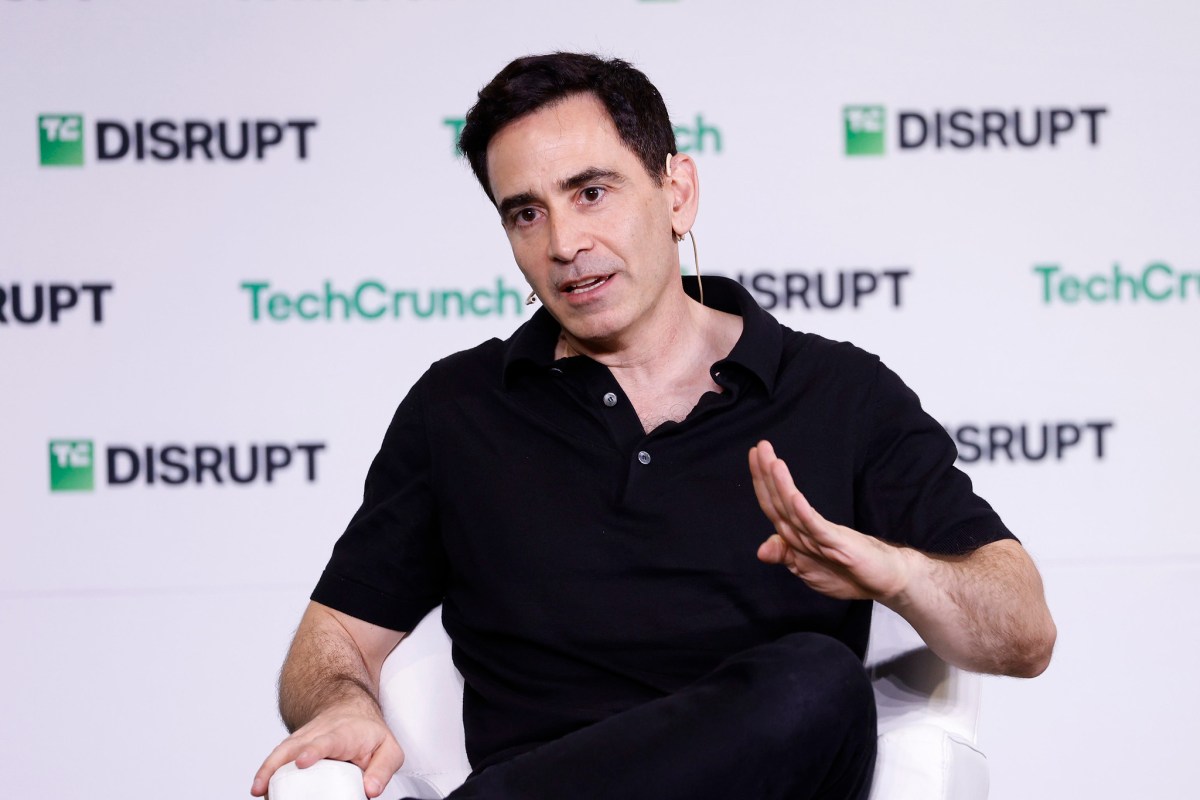Elad Gil Highlights AI Market Leaders and Untapped Opportunities

Key Points
- Foundational model leaders include Google, Anthropic, OpenAI, Meta, xAI and Mistral.
- AI‑assisted coding is dominated by Anthropic's Claude Code, OpenAI's Codex, and startups like Cursor and Devin.
- Medical transcription sees Abridge as the front‑runner, with Ambience also noted.
- Customer‑support AI features leaders Decagon, Sierra, and incumbent platforms such as Salesforce and HubSpot.
- Fintech, accounting, AI security and other verticals remain largely untapped opportunities.
- Enterprise AI adoption is accelerating, but long‑term revenue sustainability is uncertain.
- Legal AI startup Harvey is highlighted as a strong performer with rapid valuation growth.
At TechCrunch Disrupt, solo investor Elad Gil said AI remains unpredictable but several segments now have clear frontrunners. He identified foundational model providers such as Google, Anthropic, OpenAI, Meta, xAI and Mistral as dominant, and noted AI‑assisted coding, medical transcription and customer‑support tools are also converging around a handful of firms. Gil pointed to fintech, accounting, AI security and other areas as still wide open, emphasizing that enterprise enthusiasm for AI can generate rapid revenue while long‑term sustainability remains uncertain.
Clear Winners in the AI Landscape
Elad Gil, a veteran solo venture capitalist, told the audience at TechCrunch Disrupt that despite the overall volatility of the AI boom, certain markets have already coalesced around a small group of leaders. In the foundational model space, he highlighted a handful of companies that have emerged as de‑facto standards: Google, Anthropic, OpenAI, Meta, xAI and Mistral. He said, "It's like a handful," when describing these model makers, underscoring the difficulty for new entrants to displace them.
AI‑assisted coding is another segment with runaway winners. Established model creators have launched dedicated coding products—Anthropic with Claude Code and OpenAI with Codex—while startups such as Cursor and Devin (which recently acquired Windsurf) are also gaining traction. Gil mentioned Magic and Poolside as potential outliers that could challenge the incumbents.
In medical transcription, Abridge is positioned as the front‑runner, with other players like Ambience also noted as important. For customer‑support automation, Gil pointed to his portfolio company Decagon, which recently raised $131 million at a $1.5 billion valuation, and to OpenAI chairman Bret Taylor’s startup Sierra. He also noted that traditional enterprise software providers such as Salesforce and HubSpot are layering AI capabilities onto their existing platforms.
Markets Still Wide Open
Gil identified several verticals that remain largely untapped. He singled out financial tooling (fintech), accounting software, AI security and a range of other sectors where “we just don’t know who’s going to do it.” These areas, he argued, present fertile ground for new startups to capture market share before dominant players emerge.
Enterprise Adoption and Revenue Dynamics
According to Gil, large enterprises are now issuing internal edicts to develop AI strategies, leading to rapid adoption of AI products. This surge can generate quick revenue streams for startups, but Gil cautioned that “that doesn’t mean they’re going to stick.” He emphasized that the true test for AI companies will be whether revenue sustains after the initial trial‑phase boom.
Legal AI is one niche where Gil sees a clear leader. He referenced Harvey as a company that is “just working,” noting that it raised three massive funding rounds in 2025, propelling its valuation from $3 billion to $5 billion and then to $8 billion within months.
Overall, Gil’s perspective blends optimism about the rapid growth of AI‑enabled solutions with a realistic view that many markets are still in flux, and only time will reveal which startups can turn early traction into lasting dominance.